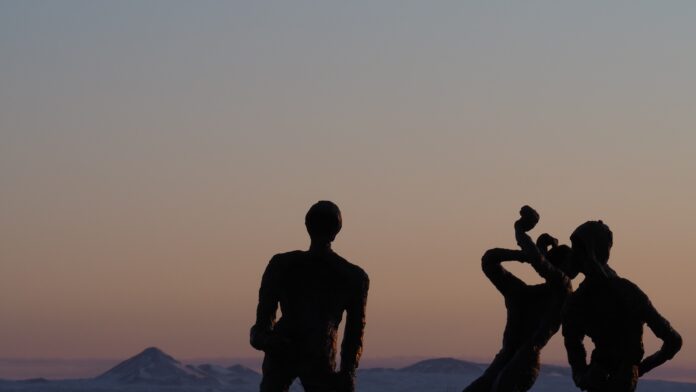There is concern in many of the Nordic countries that immigrants are suffering disproportionally from COVID-19. They have been made scapegoats and have lesser coverage than the population on average when it comes to vaccinations.

The Polish Ambassador to Iceland recently complained to Iceland´s Foreign Minister that his countrymen were as a group being made responsible for reckless behavior of a few individuals. Poles are by far the largest group of immigrants in Iceland who are up to 10% of the 360,000-strong population of the island.
Covid Shaming
At his meeting with the Ambassador, Iceland´s Foreign Minister Guðlaugur Þór Þórðarson condemned “Covid shaming” of Polish immigrants.
“We cannot tolerate any discrimination of this kind,” Þórðarson said in a statement. The Polish community has both enrichened our society and contributed to our well-being in the past few years. The recent discourse has been both malicious and unfair.”

The Icelandic Police has confirmed that individuals were subject to racist abuse after two separate incidents
Anna Karen Svövudóttir is a liaison officer with the Polish immigrants at the Icelandic Ministry of Health. She says that Poles as a group were made scapegoats on social media after a Polish individual disobeyed COVID-19 rules and infected several people.
“There was some debate, but it was based on misunderstanding”, says Anna Karen Svövudóttir. ”It is not helpful to blame one ethnic group and make it responsible for the acts one person. We are one society and we need to show solidarity, not least in these difficult times. We need each other. Just like in a marriage.”
Only together
The United Nations recently launched the international campaign “Only Together.” “The UN will continue to mobilise the international community …to put a special focus on the needs of those who have borne the burden of this crisis on so many levels: Women, minorities, the elderly, people with disabilities, refugees, migrants and indigenous peoples,” António Guterres the UN Secretary-General said.
One of the reasons for the Secretary-General´s emphasis on minorities and migrants is that the disease has taken a disproportionate toll on them. In many places, minorities are on the front lines with at-risk and low-paid jobs, such as cleaning, transport, or other services that leave them more exposed to COVID-19
Norway: Hardest hit, least vaccinated

According to Mohamed Yusuf, a leader of the Somali society in Norway, the reason for this could be that Somalis need both motivation and information communicated through appropriate channels in order to get vaccinated.
It is a challenge for authorities to reach immigrant communities. Anna Karen Svövudóttir of the Icelandic Health Ministry, points out that some of the migrants stay for a very short time. Their foreign language skills are sometimes very limited. Some of them do not have a local telephone number and no access to social media.
Vaccination hesitancy
One of the reasons may be vaccination skepticism. This is the case in the UK. As of mid-February over 90% of adults had received or said they would be likely to accept the covid-19 vaccine. However, surveys indicated much greater vaccine hesitancy among people from some ethnic minorities according to the Guardian.

The unrest surrounding the AstraZeneca vaccine may have created negative attitudes towards the vaccine according to Yusuf, the Norwegian Somali leader in an interview with Aftenposten. He emphasizes that it is absolutely crucial that information about the vaccine is communicated through trustful sources. Ethnic community organizations have to be involved disseminating information about the vaccination process.
Cultural misunderstandings
Polish expert Sölvadóttir says that although much has been translated into Polish, it is an up-hill struggle. Not only is virus continuously evolving but also rules and regulations.

“It is not always enough to translate. One of the reasons are cultural differences. The Polish are used to a different system, a different culture, different thinking.”
This applies even more to other ethnic groups. In Finland. Muhis Azizi, the Chairman of the Multicultural Council of the City of Turku told YLE, the Finnish National Broadcaster.
“I just heard in one big group that women using AstraZeneca may become infertile. Many men have asked me if this is true. One man told me that the vaccination label says: If you are going to have children, wait for two months after getting vaccinated.”, he explains.
Misunderstanding of this kind has also been created by the use of “Google translate” of documents. They are widely shared in Facebook pages dedicated to immigrant communities.
Azizi believes that it is frightening to think what type of fake news is being spread among the immigrant communities: “It will cause damage to this society, unfortunately.”
One solution that is being discussed in Finland is to literally go straight to the immigrant communities.
“We should head to shopping malls and suburbs by using vaccination buses of some kind. It would need to like this so that people could literally go from their own backyard, straight into getting vaccinated”, Markku Tervahauta Finnish Institute for Health and Welfare told YLE.






